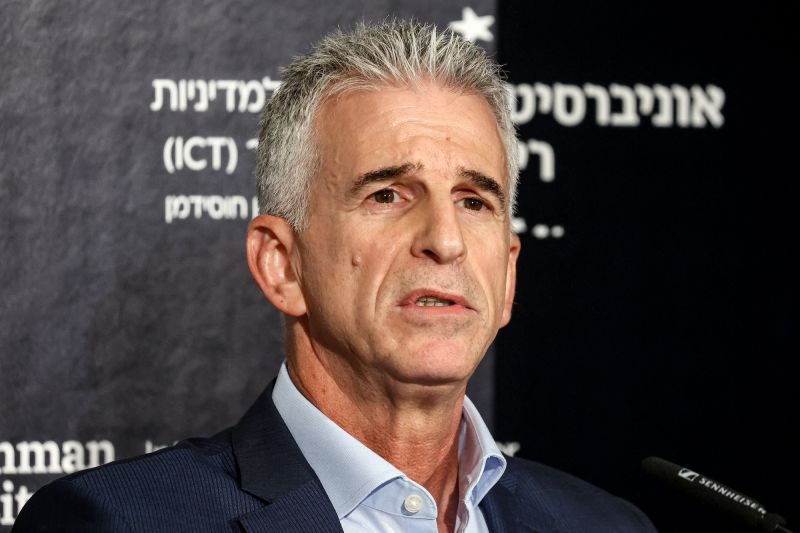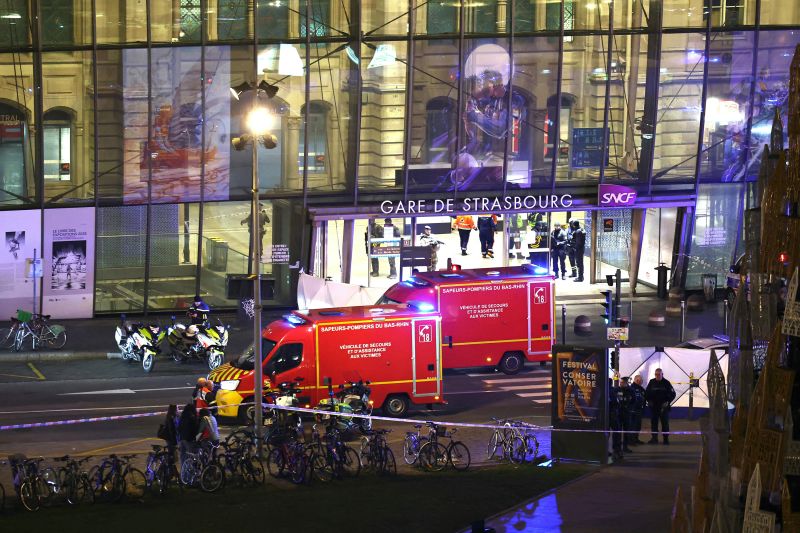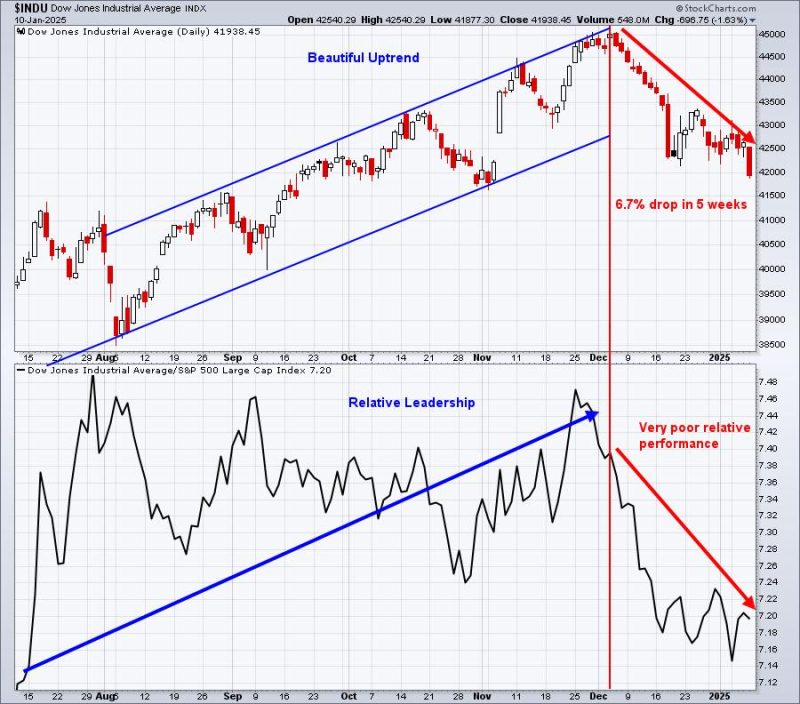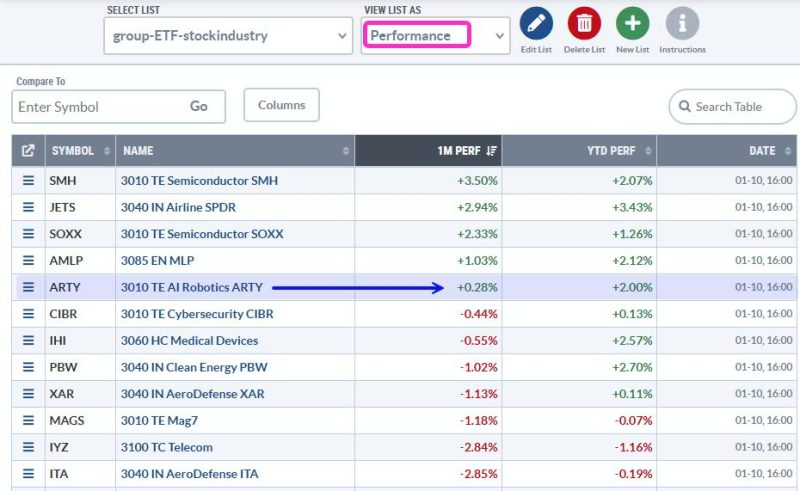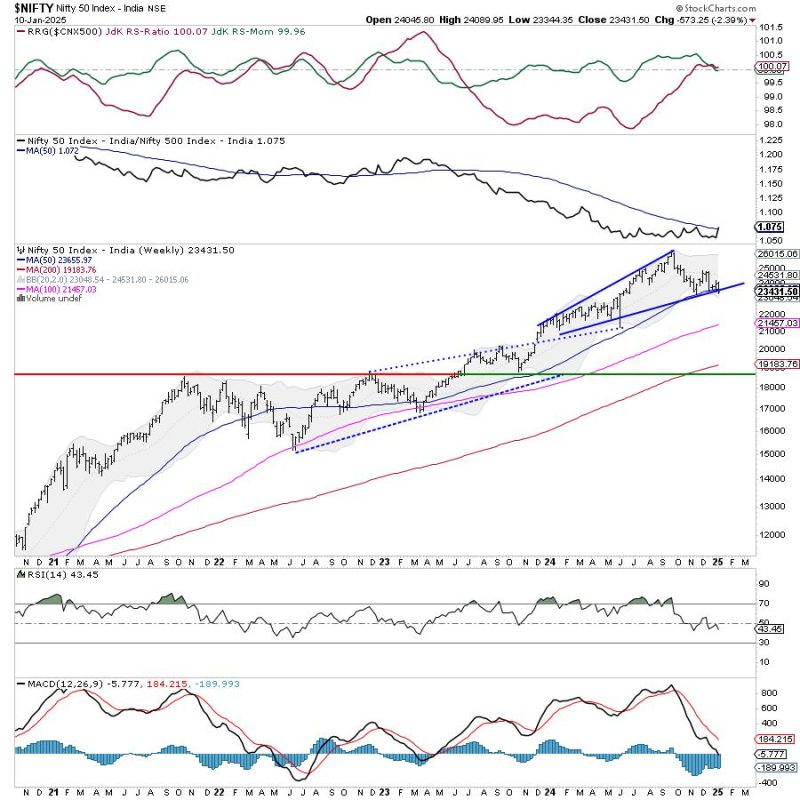Germany tows disabled Russian ‘shadow fleet’ tanker adrift in Baltic Sea
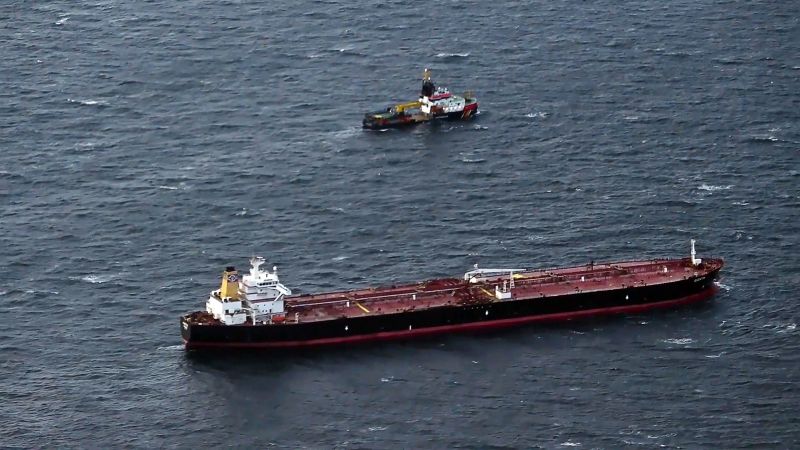
Germany is working to secure a drifting Russian oil tanker, believed to be part of Moscow’s “shadow fleet” used to fund its war in Ukraine, after it lost control in the Baltic Sea.
The Eventin tanker, carrying nearly 100,000 tons of oil thought to be from Russia, lost power near the German island of Rügen on Friday, Germany’s Central Command for Maritime Emergencies (CCME) said. By Saturday, three tugboats were still working to tow the 274-meter-long Panamanian-flagged tanker to safety.
The Eventin departed from Russia and was headed for Egypt, according to MarineTraffic, a monitoring group.
CCME said the tugboat convoy was working to tow the Eventin to Sassnitz, a port on Rügen, but that the stormy conditions were “slowing the towing process considerably.”
German Foreign Minister Annalena Baerbock said the “decrepit” oil tanker was another example of the danger Russia poses to European security.
Since Western countries sanctioned Russia’s oil exports, the Kremlin has relied on old, sometimes Soviet-era tankers – known as its “shadow fleet” – to transport oil to buyers across the world.
“With the unscrupulous use of a fleet of rusting tankers, (Russian President Vladimir) Putin not only circumvents sanctions but also deliberately accepts the risk of halting tourism in the Baltic Sea region,” Baerbock said Friday.
The Kremlin, which has previously refused to respond to accusations that it uses a “shadow fleet,” has not yet commented on the incident.
The West has grown increasingly alarmed by Russia’s dependence on this aging fleet, which has wreaked environmental havoc in the Black Sea and implicated in damage to vital undersea cables off the Baltic coast.
In December, two Russian tankers were wrecked off the coast of occupied Crimea, spilling thousands of tons of fuel into the Black Sea. Ukrainian President Volodymyr Zelensky said the ships – nearly 50 years old – “shouldn’t have been in operation at all.”
Those two tankers carried around 10,000 tons of fuel between them – 10 times less than the Eventin.
Later in December, Finnish authorities seized a tanker traveling from Russia, on suspicion it had used its anchor to damage an undersea power cable connecting Finland and Estonia.
German authorities said no oil leaks had been detected after the Eventin lost power on Friday, but warned of strong winds and waves of up to 2.5 meters (over 8 feet).
Zelensky called the tanker “an oil bomb that, fortunately, didn’t detonate.”
“Every day, Russia bombards Ukraine, and it finances its missiles, strike drones, and guided bombs, in part, with profits from its tanker fleet. Russia jeopardizes the environment solely to sustain its ability to kill people,” he said Friday.
Also on Friday, the outgoing Biden administration targeted Russia’s energy sector, including its so-called “shadow fleet,” with some of its harshest sanctions to date. Zelensky welcomed the move.
The sanctions target nearly 200 oil-carrying vessels, many thought to be part of the fleet. A senior administration official said: “We expect our actions to cost Russia upwards of billions of dollars per month.”
In December 2022, the Group of Seven (G7) nations capped the price of Russian oil at $60 per barrel. The cap was designed to be enforced by companies that provide shipping, insurance and other services for Russian oil. If a buyer agreed to pay more than the cap, the companies would withhold their services.
To dodge these sanctions, Russia has used aging, often uninsured tankers flagged in countries that do not observe the G7 sanctions.
The Centre for Research on Energy and Clean Air (CREA), a Finnish think-tank, said 420 vessels exported Russian crude oil and oil products last month, of which 234 were “shadow tankers,” and 30% of these were at least 20 years old.

